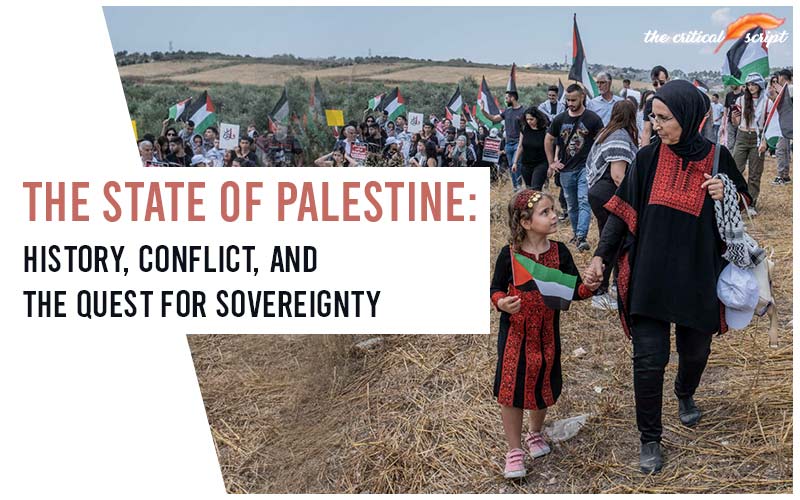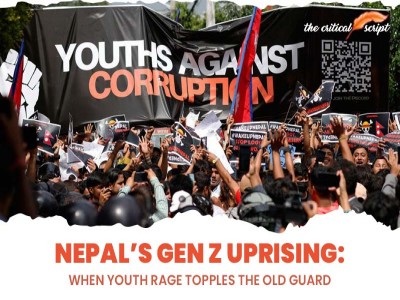
The State of Palestine: History, Conflict, and the Quest for Sovereignty
The State of Palestine, a region
steeped in historical significance and contemporary geopolitical complexity,
has been a focal point of global attention for decades. Encompassing the West
Bank, including East Jerusalem, and the Gaza Strip, Palestine's quest for
statehood and sovereignty is deeply intertwined with regional and international
politics.
The region of Palestine has a rich
history dating back thousands of years, marked by various civilizations and
empires, including the Canaanites, Egyptians, Israelites, Babylonians,
Persians, Greeks, Romans, Byzantines, Arabs, and Ottomans. The modern political
conflict began in the early 20th century, coinciding with the decline of the Ottoman
Empire and the rise of nationalist movements.
The British Mandate and Partition Plan
Following World War I, the League of
Nations granted Britain the mandate to govern Palestine. During this period,
tensions between Jewish and Arab communities escalated, exacerbated by
conflicting promises made by the British to both groups. The situation
culminated in the United Nations' 1947 Partition Plan, which proposed dividing
Palestine into separate Jewish and Arab states, with Jerusalem under
international administration. The plan was accepted by the Jewish community but
rejected by the Arab states, leading to the 1948 Arab-Israeli War.
The Arab-Israeli Conflict
The declaration of the State of
Israel in 1948 and the subsequent war resulted in significant territorial
changes. Israel captured much of the territory allocated to the Arab state, and
hundreds of thousands of Palestinians became refugees. The 1967 Six-Day War
further altered the landscape, with Israel occupying the West Bank, Gaza Strip,
East Jerusalem, and the Golan Heights.
Palestinian National Movement
The Palestinian national movement
gained momentum with the establishment of the Palestine Liberation Organization
(PLO) in 1964, which sought to create an independent Palestinian state. The
First Intifada (1987-1993) and the Oslo Accords (1993-1995) were pivotal
moments, with the latter leading to the establishment of the Palestinian
Authority (PA), which exercises limited self-governance in parts of the West
Bank and Gaza Strip.
The Oslo Accords and Peace Process
The Oslo Accords marked a significant
step towards peace, with mutual recognition between the PLO and Israel and the
creation of a framework for future negotiations. However, the peace process has
faced numerous challenges, including continued Israeli settlement expansion,
Palestinian political fragmentation, and periodic outbreaks of violence.
The State of Palestine is governed by
the Palestinian Authority in the West Bank and Hamas in the Gaza Strip,
following a 2007 split. The PA, led by President Mahmoud Abbas, is recognized
internationally and engages in diplomatic efforts for statehood. Hamas,
considered a terrorist organization by many countries, maintains de facto
control over Gaza and has been involved in multiple conflicts with Israel.
Gaza Strip: A Focal Point of Conflict
The Palestinian economy faces significant hurdles, including restrictions on
movement, limited access to resources, and reliance on international aid. The
West Bank and Gaza Strip have different economic conditions, with Gaza
experiencing severe economic hardships due to blockades and recurrent
conflicts.
The humanitarian situation in
Palestine, particularly in Gaza, is dire, with high levels of poverty,
unemployment, and inadequate access to essential services. The United Nations
Relief and Works Agency (UNRWA) provides support to Palestinian refugees, but
the needs far exceed the resources available.
The Gaza Strip has been a focal point
of Israeli-Palestinian tensions. Governed by Hamas since 2007, Gaza has faced numerous
conflicts with Israel. The most recent escalation began on October 7, 2023,
when Hamas-led militant groups launched a surprise attack on Israel, involving
a rocket barrage and an estimated 3,000 militants breaching the Gaza–Israel
barrier and attacking Israeli civilian communities and military bases. This
incident significantly intensified the conflict, leading to severe casualties
and extensive damage on both sides.
The international community remains
divided on the issue of Palestinian statehood. While over 130 countries
recognize the State of Palestine, key players like the United States and most
European countries support a negotiated two-state solution. The United Nations
General Assembly granted Palestine non-member observer state status in 2012, a
symbolic victory for Palestinian aspirations.
The road to Palestinian statehood is
fraught with challenges, including internal political divisions, external
pressures, and a volatile regional environment. The ongoing Israeli occupation,
settlement expansion, and lack of progress in peace negotiations further
complicate the situation.
The State of Palestine represents a
complex historical legacy, political struggles, and human resilience. The
pursuit of a sovereign Palestinian state continues to be a central issue in
Middle Eastern politics, with profound implications for regional and global
peace. The resolution of the Palestinian question requires sustained
international engagement, genuine commitment to peace, and recognition of the
legitimate aspirations of both Palestinians and Israelis.
Disclaimer: The opinions expressed in this article are those of the author's. They do not purport to reflect the opinions or views of The Critical Script or its editor.

Newsletter!!!
Subscribe to our weekly Newsletter and stay tuned.

















Related Comments